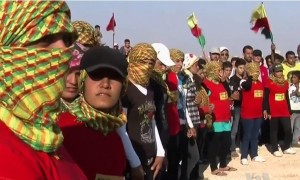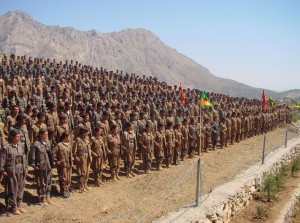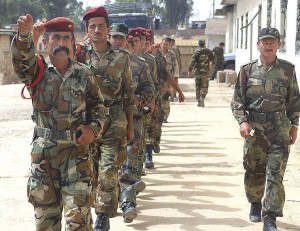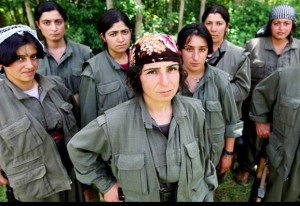“Deal with your friends as if they will become your enemies tomorrow, and deal with your enemies as if they will become your friends tomorrow.” It’s a proverb passed along through Kurdish generations — and a telling pretext to the Kurdish strategy in today’s conflict in Syria. In recent weeks, this once dormant player has awoken from its slumber, and may just provide Syria’s desperate rebels with a much needed boost to break their deadlock with the Assad regime.
Reports indicate that YPG militiamen and Syrian rebels have agreed to share control of the strategic Sheikh Maqsood District of northern Aleppo, cutting off regime supply routes to a hospital, prison, and other key positions. Rebel fighters entered the district largely unopposed on March 31. On April 6, the Syrian military bombarded Kurdish neighborhoods in northern Aleppo, killing 15 people in a likely response to this new arrangement. The following day, Kurdish militiamen attacked a Syrian military checkpoint in the city, killing five troops.

Further east, Syrian military units attacked a checkpoint manned by Kurdish militiamen in the northeastern city of Qamishli on April 4. Hours later, militiamen from the Kurdish People’s Defense Units (YPG) attacked two Syrian military positions on the outskirts of Qamishli. The attacks resulted in a number of deaths on both sides and marked the first such incident to occur in the predominantly Kurdish Hasakah Province since the Syrian military withdrew from the region’s urban centers in the summer of 2012.
Continue reading Intelligence Analysis: The Kurd’s shifting role in the Syrian conflict


